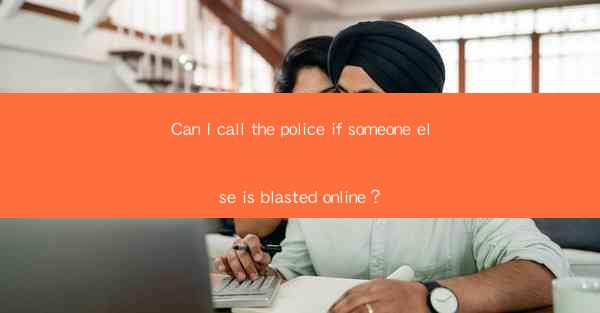
Understanding Online Harassment
Online harassment, also known as cyberbullying, has become a prevalent issue in today's digital age. It involves the use of the internet to threaten, intimidate, or humiliate someone. This can take many forms, including sending threatening messages, spreading rumors, or posting offensive content online. The severity of online harassment can range from mild to severe, and it can have significant emotional and psychological impacts on the victim.
Defining Blasting Online
Blasting online is a term that can refer to a variety of online behaviors that are considered aggressive or harmful. This can include public shaming, spreading false information, or engaging in cyberbullying. When someone is blasted online, it often means they are the target of a coordinated campaign of harassment or defamation.
Legal Considerations
The question of whether you can call the police if someone else is blasted online depends on the nature of the harassment. In many jurisdictions, online harassment is a criminal offense if it meets certain criteria. These criteria typically include the severity of the harassment, the intent to cause harm, and the impact on the victim's well-being.
Types of Online Harassment That May Warrant Police Involvement
1. Threats of Physical Harm: If someone is receiving threats of violence online, this is a serious matter that can be considered a criminal offense.
2. Stalking: Online stalking, where an individual is repeatedly followed or harassed online, can also be a criminal offense.
3. Harassment That Incites Hatred: Harassment that is based on race, religion, sexual orientation, or other protected characteristics may be considered a hate crime.
4. Child Exploitation: Any form of online exploitation of children, including the sharing of explicit material or grooming, is a crime that should be reported to the police.
Reporting Online Harassment to the Police
If you believe that someone else is the victim of online harassment that meets the criteria for criminal behavior, you can report it to the police. This can be done by calling the local police department or by filing a report online. When reporting, be prepared to provide as much information as possible, including screenshots of the harassment, the names of the individuals involved, and any other relevant details.
Legal Protections and Support Services
In addition to the police, there are other legal protections and support services available to victims of online harassment. Many countries have specific laws that protect individuals from online harassment, and there are organizations that specialize in providing support and advocacy for victims. These resources can help victims understand their rights and take steps to protect themselves.
Steps to Take Before Calling the Police
Before calling the police, it's important to take certain steps to document the harassment and protect yourself:
1. Save Evidence: Keep screenshots, messages, and any other evidence of the harassment.
2. Block and Report: Block the individuals involved and report the harassment to the platform where it is occurring.
3. Seek Support: Reach out to friends, family, or support groups for emotional support.
4. Consider Professional Help: If the harassment is causing significant distress, consider seeking help from a mental health professional.
Conclusion
In conclusion, whether you can call the police if someone else is blasted online depends on the severity and nature of the harassment. If the harassment meets the criteria for a criminal offense, such as threats of violence or stalking, it is important to report it to the authorities. However, it's also crucial to take proactive steps to protect yourself and seek support from legal and community resources. Online harassment is a serious issue, and victims should not hesitate to seek help when necessary.











